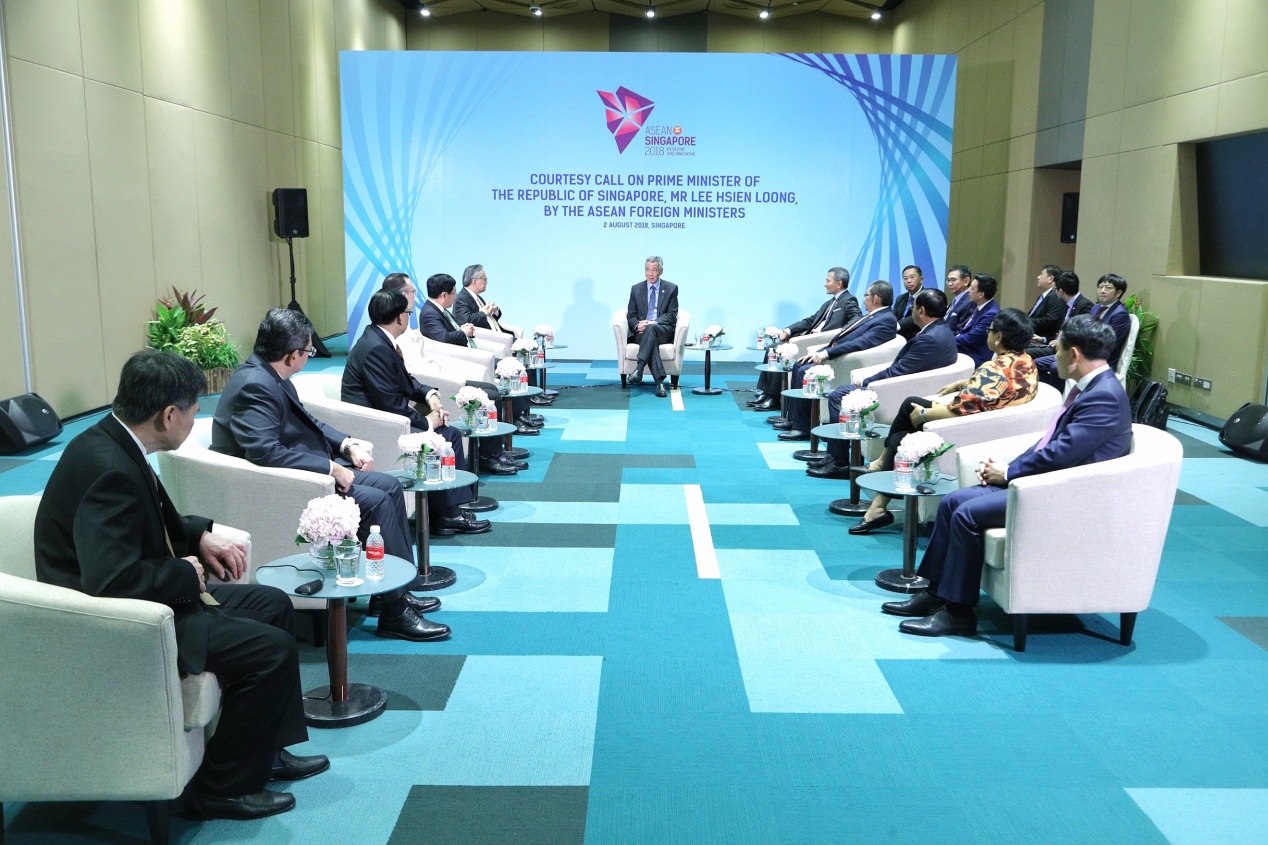
Courtesy Call on Singapore Prime Minister Mr Lee Hsien Loong by the ASEAN Foreign Ministers, 2 August 2018, Singapore. (Photo credit: Ministry of Communications and Information, Singapore)
Singapore (People’s Daily) – Facing storm clouds of the trade war and a disruption of the digital revolution, Southeast Asian countries said they will maintain an open rule-based architecture while upholding free trade and economic integration, at the opening ceremony of the annual foreign ministers’ gathering in Singapore on Thursday.
After shifting its focus to economic cooperation, the Association of Southeast Asian Nations (ASEAN) launched its free trade area in 1992, and has become one of the most successful economic groupings in the world, based on the growing middle class and a huge young workforce.
ASEAN will become the fourth largest economy in the world by 2050, said Singapore Prime Minister Lee Hsien Loong, the annual chair of ASEAN.
“It is important that ASEAN continues to support the multilateral system and work with like-minded partners to deepen our web of cooperation”, despite pressure from escalating trade tensions between the US and major economies, Lee said.
He added that ASEAN countries will work to complete the Regional Comprehensive Economic Partnership (RCEP) by the end of the year, and are discussing a civil aviation arrangement with the EU.
“When completed, the RCEP and ASEAN-EU CATA would show ASEAN’s commitment to trade liberalization and economic integration”, Lee said. But he said does not expect the process to be easy because of the growing mood of nationalization and protectionism.
As the annual chair, Singapore has proposed the ASEAN Smart Cities Network and nominated 26 ASEAN cities as pilot areas. “Singapore hopes that these cities will come together to establish a common framework for smart city development and to develop city-specific action plans and come up with innovative projects to improve the lives of our peoples,” Lee said.
Singaporean Foreign Minister Vivian Balakrishnan said it is vital for the regional grouping to remain anchored on its principles of unity and centrality, maintain an open rules-based regional architecture, and to continue to collaborate with external partners.
During the three-day event, ministers from ASEAN countries and external partners will attend 10+1, 10+3 conferences as well as the Foreign Ministers Meeting, East Asian Summit and the ASEAN Regional Forum. Wang Yi, State Councilor and Foreign Minister of China, will also attend those meetings.


